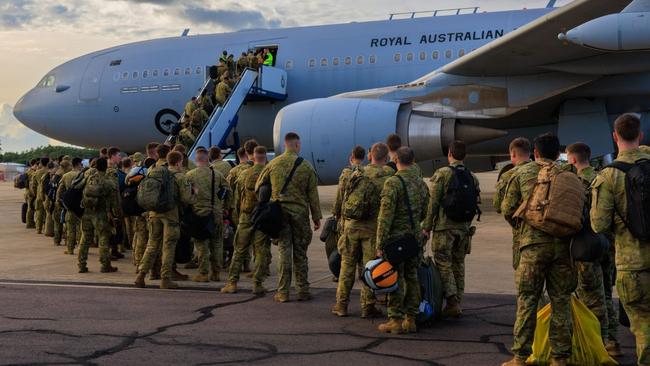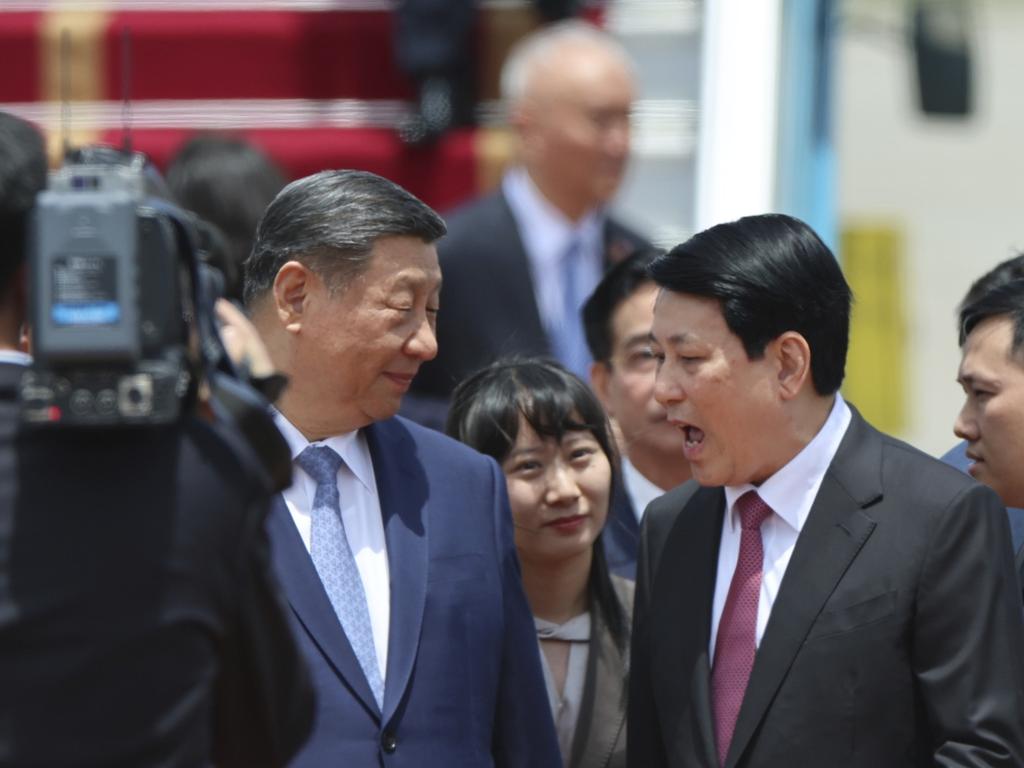Warnings from Beijing as Philippines lifts Taiwan travel ban
China says Manila’s decision to ease longstanding restrictions on official travel to Taiwan is a dangerous provocation and tantamount to meddling in Beijing’s internal affairs.

China has warned the Philippines its decision this week to ease longstanding restrictions on official travel to Taiwan is a dangerous provocation and tantamount to meddling in Beijing’s internal affairs.
President Ferdinand “Bong Bong” Marcos junior signed an order late on Monday partially reversing an almost three decades-long ban on Philippines’ government officials travelling to Taiwan, saying the move was intended to maximise investment opportunities.
The decision is part of a suite of efforts by Manila to counter tough US import tariffs – as well as years of trade punishment from Beijing – by broadening its trade relations and opening up new markets.
But the announcement coincided with the launch on Monday of the largest ever annual joint Philippines and US military exercise, known as Balikatan, which this year involves more than 14,000 troops, 20 participating countries, and the deployment of the US military’s “ship killer” missile system.
The timing of the exercise was not lost on Beijing, with swift condemnation coming from the foreign ministry and Chinese Communist Party mouthpiece Global Times.
China firmly opposed attempts by any country to use the “Taiwan question” as an excuse to strengthen military deployment in the region, heighten tensions and disturb regional peace and stability, foreign ministry spokesman Guo Jiakun said in response.
The Philippines’ decision to conduct large-scale military drills with the US at a time when the entire world was facing trade “bullying” by Washington already put Manila “on the opposite side of regional countries”, while the Taiwan move simply added to regional instability, Mr Guo said.
The official warning came only hours after Beijing issued an ominous caution to its Southeast Asian neighbours now scrambling to negotiate tariff carve outs with Washington that any attempts to “appease” the US by striking trade deals at Beijing’s expense would bring swift countermeasures.
The previous ban on official travel to Taiwan, or on Taiwanese official delegations to the Philippines, was imposed in 1987 by then-president Corazon Aquino as part of Manila’s one-China policy that diplomatically recognises the People’s Republic of China over Taiwan.
President Marcos’s directive clears the way for all officials – barring the president, vice president, secretary of foreign affairs and secretary of national defence – to visit the island for economic, trade and investment purposes using ordinary passports and without their official titles.
Philippines officials will no longer need to submit a report of their visit to the Department of Foreign Affairs, while government officials and agencies will also now be able to receive trade and investment delegations from Taiwan, so long as they receive prior approval.
But Chen Xiangmiao, director of the World Navy Research Center at the National Institute for South China Sea Studies, told the Global Times on Tuesday that the decision was a “dangerous move that seeks to meddle in China’s internal affairs by exploiting the Taiwan question, which will ultimately backfire”.
China is the Philippines’ largest trading partner, as well as the largest trading partner of ASEAN, the Southeast Asian regional organisation.
What the Philippines needed for its economic development was deeper co-operation with China, not attempts to engage in political manoeuvring which would only jeopardise its ties with China, the Global Times quoted Mr Chen as saying.
Philippines political science professor and strategic consultant Edmund Tayao said China had been doling out its own brand of trade punishment to the Philippines for years with tariffs and other imposts on everything from bananas to raw materials.
While President Marcos had made efforts to balance relations with China and the US, Manila’s historical security ally, China’s expectations were impossible to satisfy.
“What China expects to happen is that the Philippines will just allow them to do whatever they want to do in the South China Sea. That for them is balancing,” Professor Tayao told The Australian.
“China will find every reason to consider every pronouncement as provocative.
“But in terms of what’s practical for The Philippines, I am inclined to think President Marcos’s announcement on Taiwan is really about looking for alternative markets.”







To join the conversation, please log in. Don't have an account? Register
Join the conversation, you are commenting as Logout